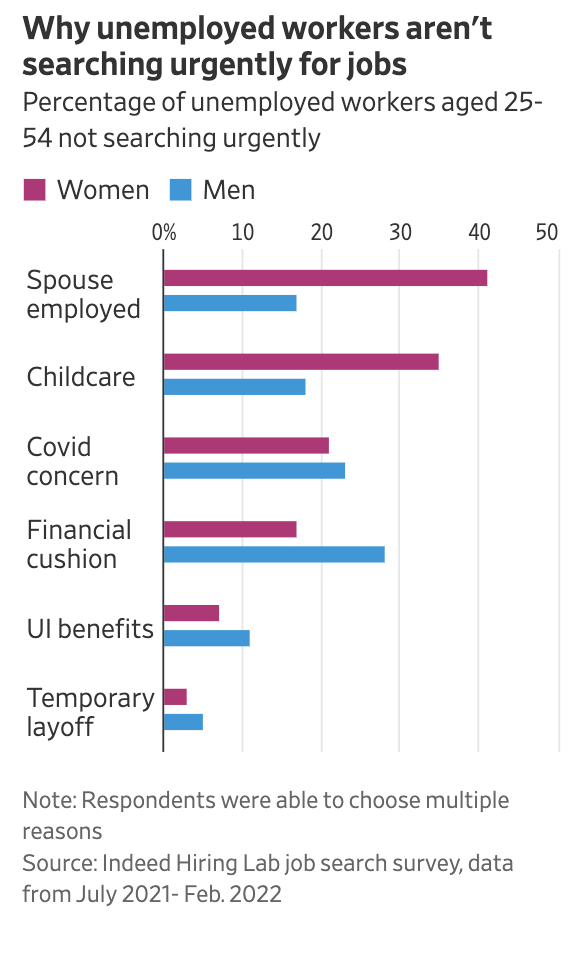“If asked to return to the workplace five days a week, nearly 40% of women with children under 18 would return and immediately start looking for a work-from-home job,” according to a report cited by the Wall Street Journal. That stands in stark contrast to less than a third of men who state they would do the same.
The exodus of women from the in-person workforce as a result of Covid-related concerns and shutdowns has had widespread impact on a variety of industries, particularly the hospitality and retail sectors. Female hesitation to return to in-person work, particularly among women who have school age children, likely plays a role in labor shortages to varying degrees.
When considering our current labor market challenges, it’s important to understand the reasons for its sluggishness and that includes considering workers through the lens of their familial obligations. Of the most notable reasons unemployed women are reluctant to return to work are because their spouse is employed (> 40%) and childcare (~ 35%).

Families often make a number of concessions when it comes to career choices in order to raise children, and those choices have been more widely felt over the past two years than any other point in my lifetime.
With cost of living rising, increasing tensions across the globe, and a potential round of new supply chain woes due to China’s recent shutdown of Shenzhen, a major tech industry supplier, family budgets will once again be stretched.
Will these recent developments lead to sustained female unemployment? If so, should we expect increasing numbers of women, mothers in particular, to consider entrepreneurial endeavors as a way to contribute to their family budget? I think the answer to both of these questions is yes and the public policy response should be to make it easier for both women and men to start businesses and provide for their families.
Plato is credited with saying, “necessity is the mother of invention.” Now, more than ever, North Carolina mothers need policymakers to think innovatively, so that barriers to work, like excessive occupational licensing requirements and indefinite school closures, aren’t hindrances to families simply trying to make ends meet.


